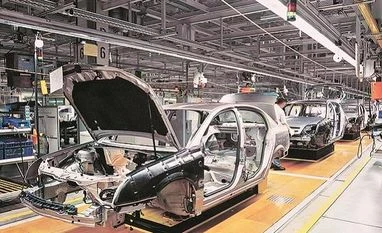As the government promotes solutions for critical policy problems in technology, its intention is driven by global developments and success models. While the electric vehicle push in India stands to benefit from established ecosystems around the world, emerging technologies are still a race that India can hope to compete well in.
The government's push on creating an enabling infrastructure for electric vehicles is hard to miss. From providing customs duty exemptions on lithium-ion cells to incentivising buyers of electric vehicles, the recent Budget has transformed EVs into a mainstream conversation in the country.
The impetus to push for EVs and a friendly regulatory policy around them is, according to most experts, a desire to compete with the ever growing influence of China in the sector.
The Chinese EV leap
A World Economic Forum report in February said China saw a 62 per cent rise to 1.3 million in sales of electric cars in 2018. That’s nearly a third of the global electric cars sold until September 2018.
China has not only invested in building EVs, but has also created an enabling environment and manufacturing capabilities over the past decade, which have helped it reach its current capacity. It also has artificial intelligence systems built inside these cars, and there are new companies and startups constantly entering the fray. All this has been possible because the government has incentivised electric vehicle ownership.
Take for example, a recent CBS News feature on EVs in China, in which it also dwells on Shanghai's waiver of a near $12,000-13,000 in license charges for obtaining a car if one opts for an electric vehicle.
India plays catch up
Last Friday, the Finance Minister proposed a Rs 1.5 lakh deduction on income tax on loans taken for electric vehicles to push for their greater adoption.
While these incentives seem to be moving in a direction similar to China's, India is still a laggard in the EV game.
However, industry insiders are fairly optimistic about the country's EV strategy, seeing the intent and actions of the government to build on the electric vehicle dream.
“The electric vehicle focus of the government is a step in the right direction, and will help in value creation, building internal capacity and getting more start-ups to solve for the energy crisis in India. The amount of oil and coal consumed is set to treble over the next three years in India. If we do not think of cleaner ways of generating fuel now, our dependence on the US for oil will continue," says Nakul Saxena, director, public policy, at software product think tank iSpirt.
He adds that it is also important to remember that the source for upcoming electric vehicle industry, including charging infrastructure should be renewable or other forms of clean energy.
A laggard in supporting tech
However, there are other areas where India wants to catch up with China and the US, such as artificial intelligence, analytics, digital payments and a host of other technologies.
Why is the government then, not getting behind these in as big a way as electric vehicles?
To be fair, India has been significantly talking of improving and increasing the skill profile of people in these areas.
In fact, Finance Minister Nirmala Sitharaman, in her maiden Budget last week, spoke about the need to promote skilling in technologies such as AI, Internet of Things, 3D printing, big data, robotics and so on, as they draw higher remuneration and are valued outside the country.
There are several government and industry-level initiatives that promote training in these fields. In some sense, India is grappling with issues similar to those of larger superpowers in these relatively nascent technologies.
“Electric vehicles is an evolved field. It is what you’d call “tried and tested”. When you talk of technology and issues like cryptocurrency, analytics, or digital taxation and payments, you are talking about areas that every part of the world is struggling with. There are no perfect models,” said aperson who works closely with the Ministry of Electronics and Information Technology, but didn't wish to be named.
There are areas where India is moving to create frameworks and enabling environment, but the pace is often not enough to keep up with technology.
Take for example artificial intelligence. It is an area where India is aware of the fact that it needs to develop a comprehensive policy framework. The government and policy think tank NITI Aayog have done comprehensive studies on the subject. Execution is quite another matter.
An AI Centre planned to be set up by the government was stuck because of the lack of an anchor department.
A lot is at stake here - AI is fast becoming as much a political and economic issue as it is a matter of technology. The US, Canada, the European Union, and China are among those that have comprehensive policy statements on AI and are shaping the global conversation.
India, in spite of its vast and diverse data sets, a prerequisite for robust AI systems, is not part of many mainstream discussions and deliberations on AI.
The case is similar with digital payments, data analytics, IoT and digital taxation.
The risk lies in not moving fast enough on these technologies and falling behind, much like the experience in electric vehicles earlier.
Unlock 30+ premium stories daily hand-picked by our editors, across devices on browser and app.
Pick your 5 favourite companies, get a daily email with all news updates on them.
Full access to our intuitive epaper - clip, save, share articles from any device; newspaper archives from 2006.
Preferential invites to Business Standard events.
Curated newsletters on markets, personal finance, policy & politics, start-ups, technology, and more.
)